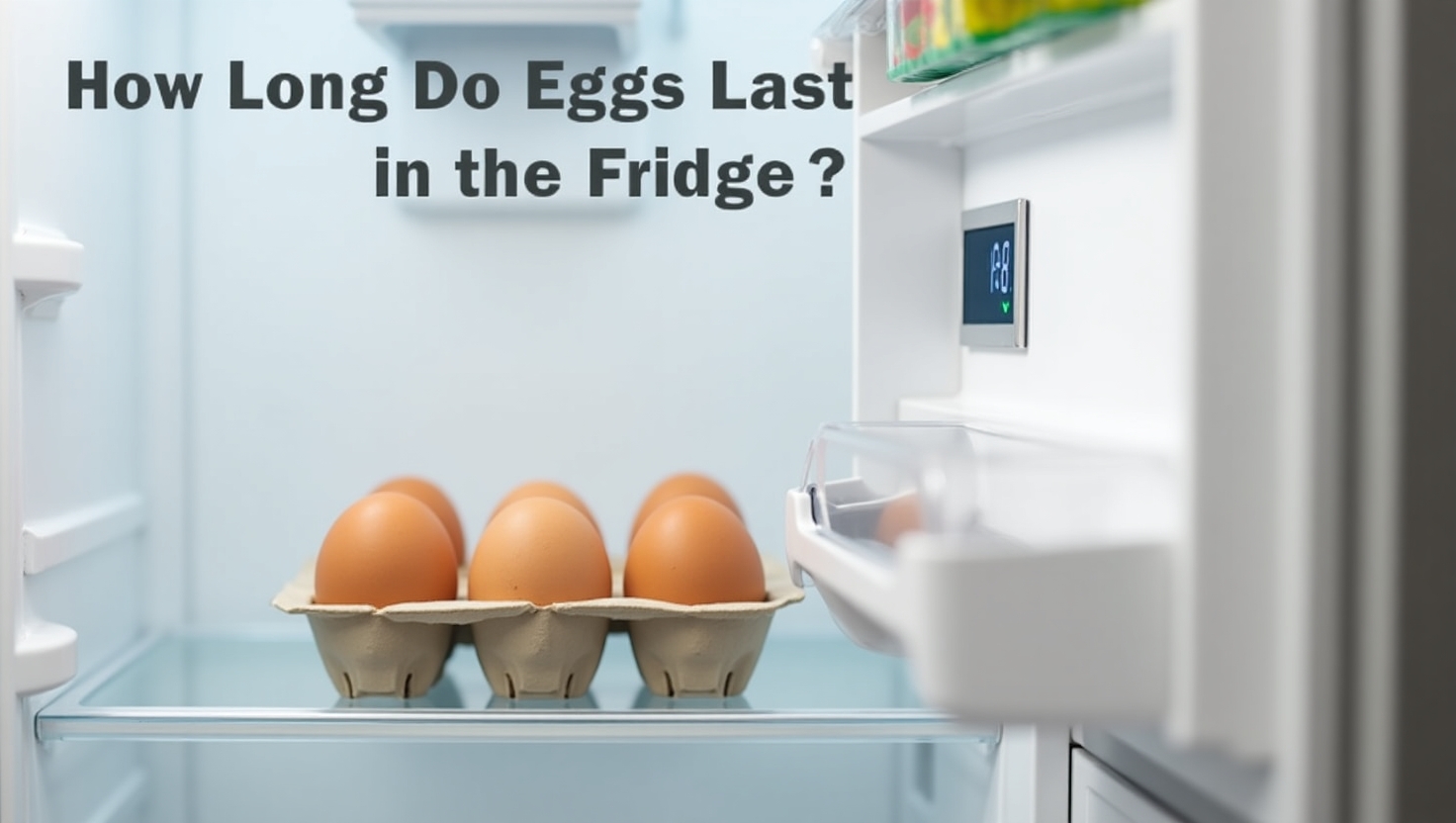Wondering how long do eggs last in the fridge and how to store eggs properly for food safety? You’re not alone. Many people are unsure about the shelf life of eggs and whether they’re still safe to eat after sitting in the fridge for weeks. This guide will answer all your questions about egg storage, egg freshness, spoilage signs, and best practices for refrigeration.
If you’re concerned about throwing away good food or worse—eating spoiled eggs—this article is worth reading. We’ll explore expert advice, scientific insight, and easy home tests to ensure your eggs in the fridge are always safe to eat. Plus, you’ll learn how to avoid food poisoning and maintain top egg freshness.
1. How Long Do Eggs Last in the Fridge?
A common question is: How long do eggs last in the fridge? The answer depends on how they’re stored and whether they’ve been cooked. Fresh eggs kept in their original carton and placed in the coldest part of the fridge can last three to five weeks beyond the expiration date.
According to the U.S. Department of Agriculture (USDA), eggs that are kept refrigerated below 40°F (4°C) are safe to consume for several weeks. If you store your eggs properly, even after the expiration date, they may still be safe to eat.
2. Should You Refrigerate Eggs Right After Buying Them?
Yes! Always refrigerate eggs as soon as you get home. If eggs go bad, it’s usually because of improper storage or fluctuating temperatures. Once eggs are chilled, keeping them at a consistent refrigeration temperature is key to preventing bacterial contamination.
Eggs in the fridge should stay in their original carton, which helps block odors and moisture. Avoid leaving eggs out of the fridge, even briefly, as condensation can form on the shell, encouraging bacterial growth by breaking down the egg’s natural protective coating.
3. How to Store Your Eggs Properly in the Fridge

To maximize shelf life, store eggs in their original carton on a middle or lower shelf, not in the door. The egg carton shields them from exposure to light and temperature changes caused by opening the fridge.
Unwashed eggs still have a natural protective layer that helps them last longer. However, washed eggs—common in many countries—have that layer washed away, making them more susceptible to bacteria. Either way, refrigerate eggs quickly to keep them safe to eat.
4. How Can You Tell If an Egg Has Gone Bad?
Wondering how to tell if an egg has gone bad? Try the float test: Place the egg in a bowl of water. If the egg floats, it may be spoiled. This happens because over time, air fills the egg’s air cell, making it more buoyant.
Other signs a raw egg has gone bad include a sulfur smell, slimy shell, or pink/discolored whites or yolk. Never take chances with spoiled eggs—throw away any questionable eggs to avoid food poisoning from salmonella or other harmful bacteria.
5. Do Eggs Go Bad Even If They’re in the Fridge?
Yes, eggs can still go bad, even in the fridge, especially if they’re not stored properly. Although refrigeration slows bacterial growth, it doesn’t stop it completely. Freshness gradually declines the longer eggs are stored.
Cracked or uncracked eggs that have been in the fridge for 6 weeks or longer might not be good to eat, even if they don’t smell. It’s best to mark the date on the carton when you purchase them to track egg freshness more accurately.
6. What Happens If You Leave Eggs Outside of the Fridge?
Eggs left out at room temperature for more than two hours (or one hour in hot weather) should not be consumed. This is especially true for washed eggs, as the protective coating is gone, making them more vulnerable to bacterial growth.
Eggs that are unrefrigerated and outside of the fridge lose freshness rapidly. The Department of Agriculture warns that improper storage increases the risk of food poisoning, so always keep your eggs cold.
7. How Long Do Hard-Boiled Eggs Last in the Refrigerator?

Hard-boiled eggs don’t last as long as raw eggs because their protective layer is removed during boiling. When kept refrigerated, they should be eaten within one week. Store them in a covered container in the fridge to maintain freshness and prevent odor absorption.
Label your container with the boiling date to avoid confusion. If you’re unsure how long they’ve been sitting, apply the float test or inspect for off smells and textures before deciding if they’re still good.
8. Can You Still Use Eggs Past the Expiration Date?
Yes—sometimes. The expiration date on the carton is a guideline, not a hard rule. Many eggs in their original carton will still be safe to eat even a few weeks past that date, provided they’ve been refrigerated consistently.
To ensure egg freshness, use common sense: Check for cracks, do the float test, and look for any odd smells or textures. When in doubt, throw it out. Always prioritize food safety over saving a few cents.
9. How to Do the Float Test for Egg Freshness
The float test is a popular home method to check if an egg is safe to eat. Fill a bowl or glass with water, and gently place the egg in it. Here’s what to watch for:
- Sinks to the bottom, lies flat: Very fresh eggs.
- Sinks but stands upright: Still good, but aging.
- Floats to the top: The egg has gone bad and should be discarded.
This test works because the air cell inside an egg grows over time, making it more buoyant. It’s an easy and reliable way to check your eggs in the fridge before cooking.
10. Best Practices for Egg Storage and Food Safety
Maintaining proper egg storage is crucial for food safety. Here are expert-approved tips:
- Refrigerate eggs immediately after purchase.
- Store them in their original carton in the coldest part of the fridge, not the door.
- Never wash eggs before storage—it removes the natural protective layer.
- Avoid cracking eggs until ready to use.
- Don’t consume uncooked eggs from unknown sources to prevent salmonella risk.
- Use the float test or check for odors before using old eggs.
- Label cartons with purchase dates for easy tracking.
By following these simple tips, you’ll keep eggs fresher longer and reduce your risk of foodborne illness.
Key Takeaways: How to Keep Your Eggs Safe to Eat
- How long do eggs last in the fridge? Up to 5 weeks when stored properly.
- Refrigerate eggs as soon as possible and keep them cold.
- Store eggs in their original carton in the middle of the fridge, not in the door.
- Never leave eggs outside of the fridge for long—bacterial growth happens fast.
- Use the float test to check egg freshness at home.
- Spoiled eggs often float, smell bad, or look discolored—throw them away.
- Hard-boiled eggs last about one week in the refrigerator.
- Eggs may still be safe to eat after the expiration date, but always check them first.
- Avoid food poisoning by practicing good egg storage and hygiene.
- The USDA recommends keeping eggs refrigerated at or below 40°F (4°C).
Now that you know exactly how to handle your eggs in the fridge, you can crack on with confidence!





